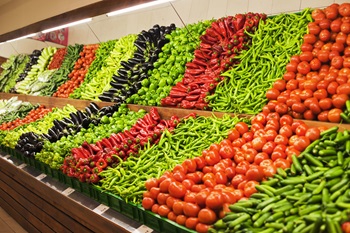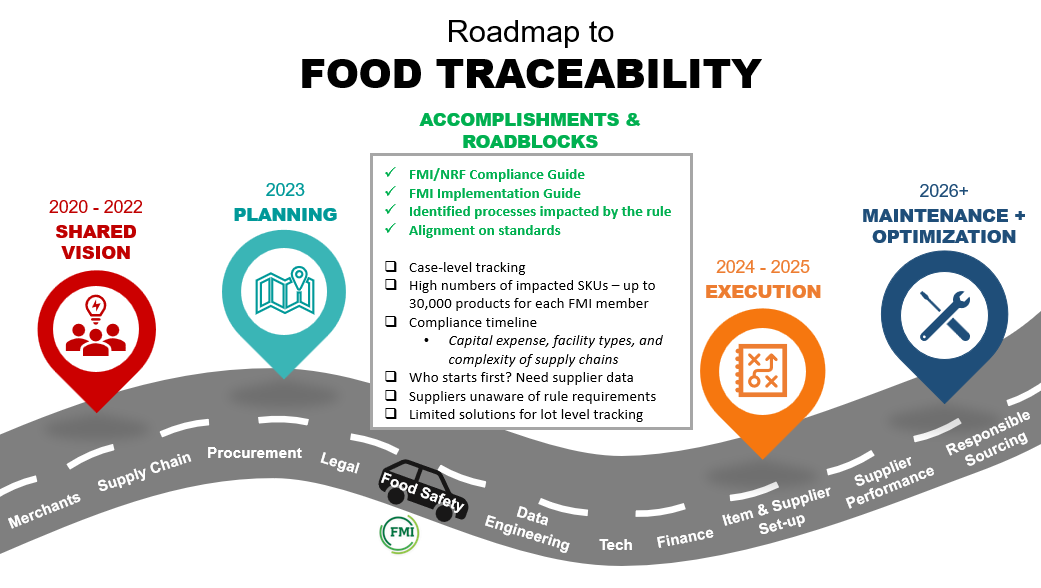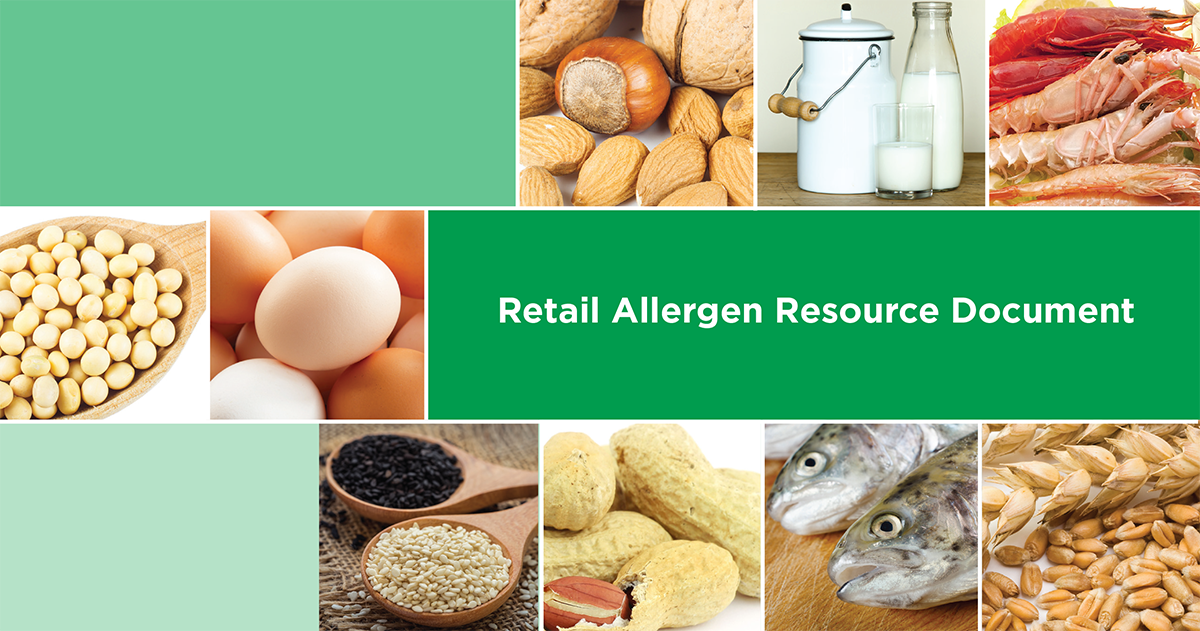By Robert Garfield, Chief Food Safety Assessment Officer & Senior Vice President, Safe Quality Food Institute

The following article appeared in the January/February 2017 Edition of Retail Leader.
Consumer confidence remains high for the grocery industry, per FMI’s U.S. Grocery Shopper Trends research, but the industry has witnessed some critical suggestions, not to mention an act of Congress (the Food Safety Modernization Act), that as the trend in foodservice and prepared foods grows at food retail, a truly farm-to-fork food safety approach is needed. Consumers have expectations that their local store offers verifiable proof that robust food safety control systems is in place, so food safety systems will in turn need to be properly validated and show evidence of continuous monitoring procedures.
In line with these expectations, the Safe Quality Food Institute (SQFI), a division of FMI, will soon launch its Retail/Wholesale Grocery Code, the newest certification program from SQFI. The program was developed to provide retailer and wholesaler organizations with the requirements to achieve accredited certification and creates a 365-degree uniform food safety management system across the retail and wholesale food industry.
The SQF Retail/Wholesale Grocery certification provides brand protection and an additional level of protection to consumers.
Food safety is a culture that must be developed within a company, and like other disciplines, it must be managed. The benefit of this new comprehensive program is its continuity. All Retail/Wholesale Grocery activities of an organization are now covered by one SQF Program. What’s both unique and satisfying about the program is that the entire corporate office, brands, banners, franchises, stores – including all premises, support buildings, loading and unloading bays and external grounds – must be included in the scope of certification.
Other reasons why the SQF Retail/Wholesale Grocery certification is important:
- Requirements are in place for suppliers so retailers completes the food safety management loop;
- Provides increased stakeholder confidence in the company;
- Supports legislative and regulatory legal aspects;
- Encourages continuous improvement;
- Requires validating processes and systems;
- Connects the corporate policies to store practices;
- Allows retailer to have a true 3rd party audit system;
- Act as a high integrity independent 3rd party validation;
- Gives CEOs confidence with the internal systems and controls (sleep better at night);
- Ability to benchmark against other retailers’ performance; and
- Uniform food safety approach to systems and vocabulary across the farm-to-fork sector within the food industry.
This program and its attributes are also complementary to SafeMark®, FMI’s comprehensive food safety training program, to reduce the risk of foodborne illnesses. Establishing a food safety system infrastructure that connects corporate policies to in-store practices demonstrates management’s commitment to food safety and creates a culture of food safety throughout the organization.
With these partners, training and resources, the food value chain can continue to instill stakeholder confidence in the food supply.
Note: SQFI’s Retail Program will launch in March 2017 in conjunction with edition 8 of its code.


 Industry Topics address your specific area of expertise with resources, reports, events and more.
Industry Topics address your specific area of expertise with resources, reports, events and more.
 Our Research covers consumer behavior and retail operation benchmarks so you can make informed business decisions.
Our Research covers consumer behavior and retail operation benchmarks so you can make informed business decisions.
 Events and Education including online and in-person help you advance your food retail career.
Events and Education including online and in-person help you advance your food retail career.
 Food Safety training, resources and guidance that help you create a company food safety culture.
Food Safety training, resources and guidance that help you create a company food safety culture.
 Government Affairs work — federal and state — on the latest food industry policy, regulatory and legislative issues.
Government Affairs work — federal and state — on the latest food industry policy, regulatory and legislative issues.
 Get Involved. From industry awards to newsletters and committees, these resources help you take advantage of your membership.
Get Involved. From industry awards to newsletters and committees, these resources help you take advantage of your membership.
 Best practices, guidance documents, infographics, signage and more for the food industry on the COVID-19 pandemic.
Best practices, guidance documents, infographics, signage and more for the food industry on the COVID-19 pandemic.
